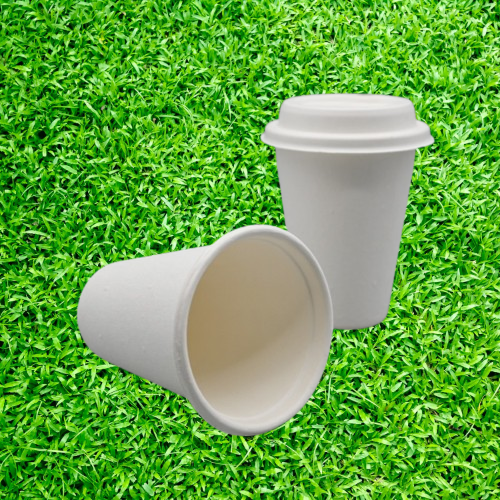In today's food service sector, molded fiber packaging has become an indispensable solution, providing consumers with safe and environmentally friendly food containers with its unique durability, strength and hydrophobicity. From takeout boxes to disposable bowls and trays, molded fiber packaging not only ensures food hygiene and integrity, but also meets the market's demand for sustainable packaging materials. This article will delve into the definition of molded fiber packaging, the importance of chemical solutions, and different types of fiber packaging, aiming to provide readers with a comprehensive understanding.
What is Molded Fiber Packaging and Why It Matters
Molded fiber packaging is a packaging product that uses molding technology to process fiber materials (such as pulp, bamboo pulp , corn starch or sugarcane pulp) into a specific shape. The production process of molded fiber packaging is relatively environmentally friendly because most of its raw materials come from renewable resources and the waste in the production process can be recycled and reused. This form of packaging not only has good mechanical properties such as durability and strength, but also has excellent biodegradability and has less impact on the environment. Therefore, it is particularly popular in the food service field because it not only protects food from external contamination, but also maintains the freshness and integrity of food during transportation and storage. The durability and strength of molded fiber packaging make it ideal for carrying heavier foods, while its hydrophobicity ensures that the food does not become wet due to packaging.
Molded Fiber Packaging Applications for Food Service
In the food service sector, molded fiber packaging has been widely used and has become a part of common food packaging such as bowls, trays and takeout boxes. These packages not only provide the necessary protection to ensure that food is not damaged during transportation and storage, but also can be quickly degraded after use to reduce environmental pollution. For example, molded fiber bowls and trays can withstand certain temperature changes and are suitable for microwave heating or refrigerator refrigeration. In addition, the design of takeout boxes also focuses on convenience and durability to ensure the safety and freshness of food during transportation.
Capabilities of Molded Fiber Chemical Solutions
In order to meet the needs of different usage scenarios, molded fiber packaging needs to have a variety of functional features. These functional characteristics, primarily achieved through molded fiber chemical solutions, include durability, strength and hydrophobicity. For example, by adding appropriate chemical additives to the pulp, the strength of molded fiber packaging can be significantly enhanced, making it less likely to deform or break when carrying heavy loads. At the same time, hydrophobic treatment can effectively prevent liquid penetration and ensure the hygiene and safety of food packaging. These chemical solutions not only increase the practicality of molded fiber packaging but also ensure hygienic standards for the final product.
Molded fiber chemical solutions
To ensure these necessary functionalities of molded fiber packaging, chemical solutions play a vital role. Through precise chemical treatments, the durability and strength of fiber materials can be enhanced while maintaining their natural hydrophobicity. These chemical treatments also include ensuring the hygiene of the final product, providing consumers with safer food packaging options by inhibiting the growth of bacteria and microorganisms. In addition, chemical solutions are also committed to improving the recyclability and biodegradability of molded fiber packaging, thereby reducing the impact on the environment.


Different Types of Molded Fiber Packaging
Molded fiber packaging is primarily made from paper pulp, but as technology develops and market demands change, a variety of different raw material options have emerged. In addition to traditional recycled paper, bamboo pulp and sugarcane pulp have become popular alternatives due to their rapid growth and renewability. In addition, corn starch is also used in the production of molded fiber packaging because it is not only a renewable resource, but also biodegradable under certain conditions. An innovative example is the molded sugarcane fiber coffee cup, which uses the natural properties of sugarcane pulp to provide a packaging solution that is both environmentally friendly and practical.
Sustainability
Plastic pollution is one of the most pressing environmental issues. There is widespread evidence that plastic is contaminating our waters, wildlife and negatively impacting human health. Plastic packaging is a large contributor to the global crisis and the search for plastic-free packaging has helped to push the demand for fiber-based packaging.
Recycling rates for plastic are very low. By comparison, the recovery rate for paper and cardboard packaging is quite good and the network to recover them for recycling is well developed. Molded pulp packaging is part of a strong closed loop system – pulp packaging is made from recycled fiber materials and can be easily recycled after its useful life with other paper and cardboard materials.
The future of molded fiber packaging
As global awareness of sustainable development and environmental protection continues to increase, the future of molded fiber packaging is full of opportunities. Technological advances will make fiber packaging more excellent and more environmentally friendly. For example, by improving the chemical treatment process, the strength and durability of fiber materials can be further improved while reducing the impact on the environment. In addition, as consumers' demand for biodegradable and recyclable packaging increases, the market potential of molded fiber packaging will further expand.

With its unique advantages, molded fiber packaging plays an increasingly important role in the food service sector. Through the continuous optimization of chemical solutions and innovation in raw material selection, molded fiber packaging not only meets the market demand for functional packaging, but also conforms to the trend of sustainable development. With the advancement of technology and the improvement of consumer awareness, we have reason to believe that molded fiber packaging will occupy a more important position in the packaging industry in the future.
You Can Contact Us:Contact Us - MVI ECOPACK Co., Ltd.
E-mail:orders@mvi-ecopack.com
Phone:+86 0771-3182966
Post time: Jun-24-2024










